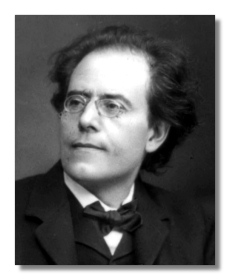Build the Experience to Build the Art
by Colin Pinto-Martin
My whole life in music has been building up to this one day when I can breathe a sigh of relief because the panel calls my name as the winner of an audition. The question is can I work hard enough to keep it, or whether it will be there for long. I once thought that the answer to both questions revolved around my playing ability, but I have come to find that it is less me and more to do with my audience—or lack thereof.
The main problem facing classical musicians requires them to step out of their own perspective for a moment, in order to understand what it is like for someone who doesn’t like classical music. This can only be done through what the corporate world calls “product testing,” an essential element of commercial success. Focus groups tell you what they like and don’t like about a product, and CEOs learn when ideas are out of touch with the general public.
Classical musicians have to begin to think like CEOs.
While a successful business is often concerned with growing and adapting itself, 90% of ideas that come from classical musicians on how to promote their craft don’t involve changing themselves but the consumer. I believe that this is a losing battle. For example, Les Dreyer, a retired violinist, offers this opinion in the New York Times: “Instead of dragging children to concerts, where they squirm with boredom, rent some old movies featuring soundtracks of classical music.” Associating old movies with classical music is not going to help the art form grab enough market share in the younger generation for orchestras to grow. Kids who enjoy old movies may resonate with classical music, but these will be the future musicians, not the benefactors.
Yet Dreyer has one thing right when he writes that there are “harbingers of the death of classical music in America.” This whole idea revolves around innovation vs. tradition.
Innovation is a scary topic for musicians since our craft revolves around compositions written centuries ago, and many will claim that we cannot change classical music. I am willing to accept that Mahler 1 will always be Mahler 1 and that Beethoven 5 will never add a 16th note to the hook. Yet we can change the person playing it. The innovation must revolve around how we as musicians interact with the audience.
I propose that we sell the experience, the player, the passion – and not just the music.
Building a relationship outside of the concert hall is essential. If you want to reach people in their 20s, then you need to meet them where they are, which might mean a jam session in a club. If you want children, then you need to get into the schools more. Yes, I know they have outreach programs, but when I was in grade school and high school no musicians came to show that they cared about me outside of the concert hall. Those are the actions that I would remember, that would make me feel a connection to the musician and the music.

Penguins goalie Marc-Andre Fleury delivers pizza (Photo: Pittsburgh Penguins)
Consider an example from hockey. Yes, hockey. When the Pittsburgh Penguins played the Tampa Bay Lightning students stood in line from 5am on in order to try to get student rush tickets. At 5pm members of the team came out and hand delivered pizzas to students standing in line. Not just the 3rd and 4th lines but their starters. Acts like these, along with driving to people’s homes and having players hand deliver season tickets have built their brand in the city. The community is behind them, win or lose.
The secret to maintaining orchestras lies in connecting with the community as people by understanding them and showing them that we care about them as much as we care about the music. It is not about getting the job, playing nice till tenure hits, and then working only when inside the hall or the practice room. There shouldn’t be a sigh of relief when the job is won, just a massive breath diving in deeper.
The idea of selling the experience comes from personal experience. When I started out, classical music did not resonate with me on a deep level. I don’t have a story of being touched by Brahms’ ingenious composing or by Messian’s unique color pallets. Everything on the classical station, from Babbitt to Mozart, sounded the same. I would play in orchestras at school and not have a clue what was going on. Slowly, piece-by-piece I would fake my way through concert after concert, often unsuccessfully. I just liked playing the drums, and the classical side of playing represented a challenge that I wanted to rise to meet. I practiced hard so that I could be better than others and see marked improvements in my playing.
Then, one day while flipping radio stations in the car, I paused on the classical station and heard something I liked, which was actually a bit of a shock. “I remember playing that in TRYPO,” I thought, recalling my days with my youth orchestra. I had forgotten the title of the piece and didn’t even know why I liked it until the cymbals came in. It was Tchaikovsky’s “Marche Slave.” Slowly from then on I started to realize that I only enjoyed pieces that I had played in previously. It wasn’t the music with which I was in love; it was the experience that it represented.
Classical musicians are some of the hardest working people I have met. I make sure to try to feel that way every night before I go to bed as the words of my former teacher echo in my head, “You don’t have a job.” I understand that I haven’t landed that coveted orchestra spot yet, but that won’t stop me from making sure that one exists when I am ready to step into that world. And it won’t stop me from trying to build the experience for others – and maybe even bringing them a pizza if they are waiting in line for a ticket.
*****
Articles of Related Interest from The Muse Dialogue:
“Generational Shifts” by Elyssa Jechow
“A Question of Arts Survival” by Andrew Swensen
“All Dressed Down and No Place to Go: Do Orchestras and Young Musicians Have a Future?” by Colin Pinto-Martin
“The Classical Musician’s Paradigm Shift,” by Annie Gordon
“Some [Don’t] Like it Hot: A Perspective on Targeting Young Audiences, Part I” by Kelly Englert











I totally agree that changing the experience, especially the sense of relationship between performer and audience, is key. And it’s not just about people in their 20s (I’m a lot older than that). For example, I’ve been enjoying the format of Classical Revolution in Pittsburgh, e.g., http://franklinchen.com/blog/2013/02/28/another-exciting-concert-at-bar-marco-chris-norman-and-the-chatham-baroque-playing-a-tasty-assortment-of-dynamic-music/